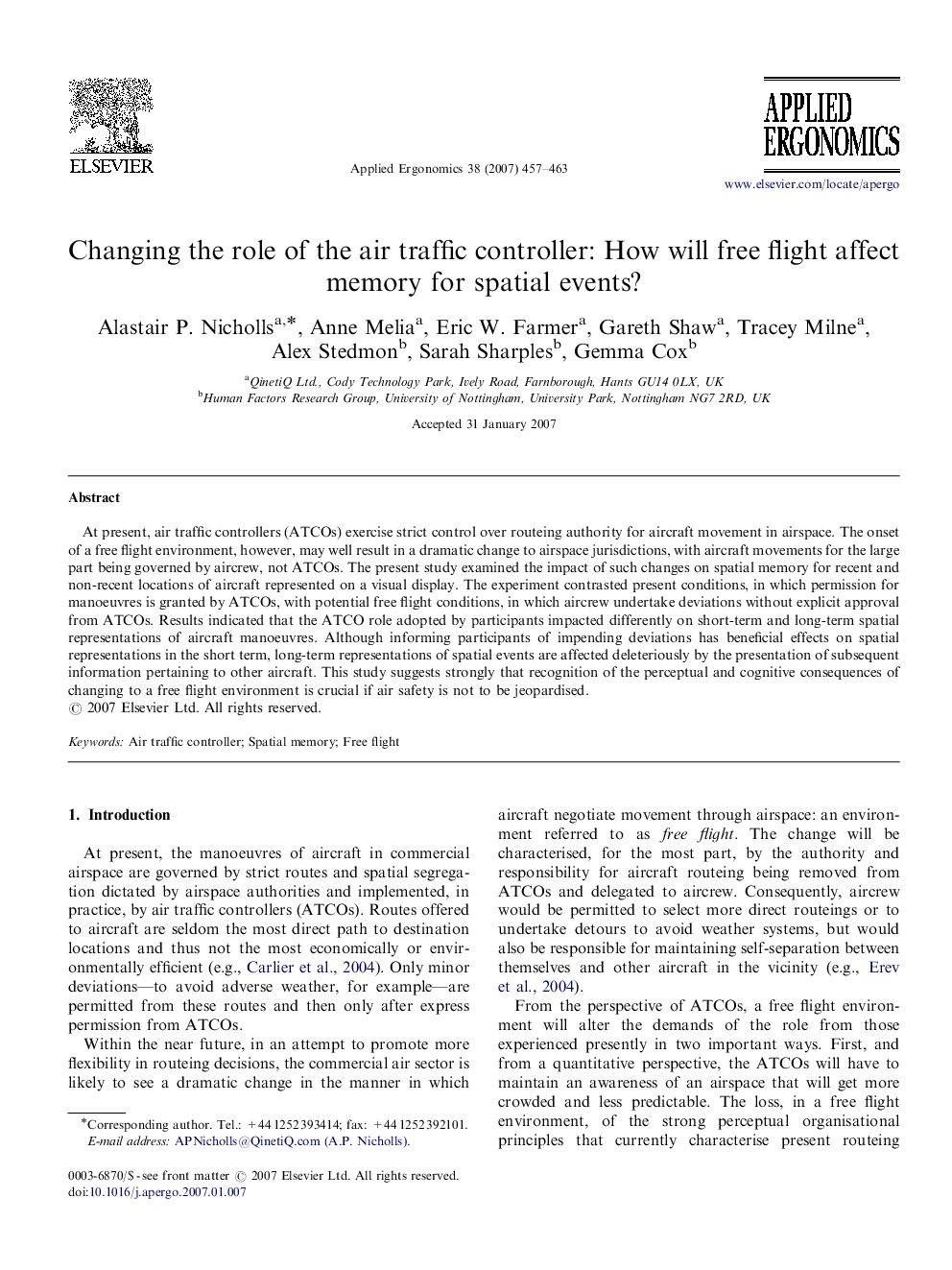| Article ID | Journal | Published Year | Pages | File Type |
|---|---|---|---|---|
| 551455 | Applied Ergonomics | 2007 | 7 Pages |
At present, air traffic controllers (ATCOs) exercise strict control over routeing authority for aircraft movement in airspace. The onset of a free flight environment, however, may well result in a dramatic change to airspace jurisdictions, with aircraft movements for the large part being governed by aircrew, not ATCOs. The present study examined the impact of such changes on spatial memory for recent and non-recent locations of aircraft represented on a visual display. The experiment contrasted present conditions, in which permission for manoeuvres is granted by ATCOs, with potential free flight conditions, in which aircrew undertake deviations without explicit approval from ATCOs. Results indicated that the ATCO role adopted by participants impacted differently on short-term and long-term spatial representations of aircraft manoeuvres. Although informing participants of impending deviations has beneficial effects on spatial representations in the short term, long-term representations of spatial events are affected deleteriously by the presentation of subsequent information pertaining to other aircraft. This study suggests strongly that recognition of the perceptual and cognitive consequences of changing to a free flight environment is crucial if air safety is not to be jeopardised.
